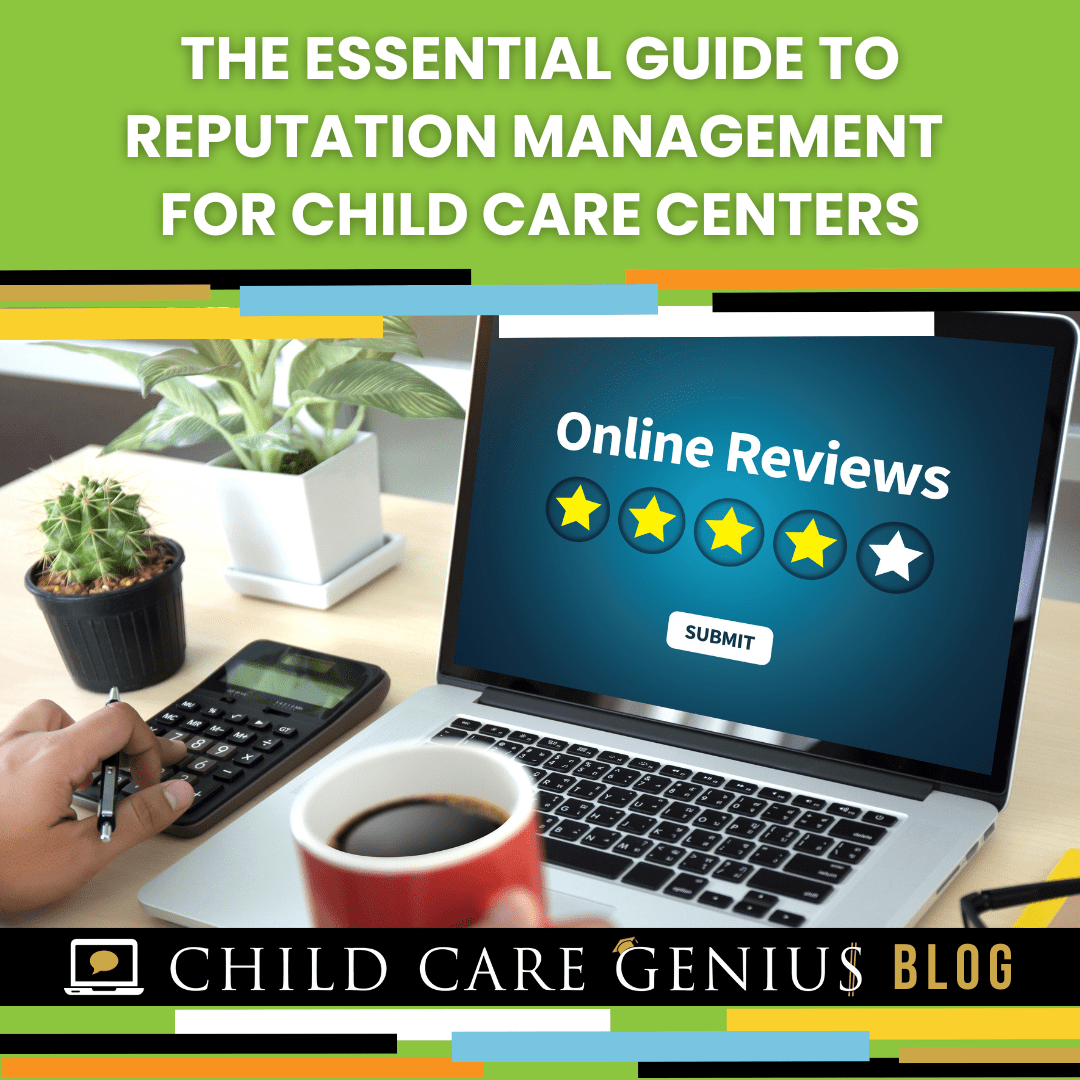By Blessing Okoro
In today’s digital landscape, your child care center’s reputation means everything. Parents are heavily reliant on online reviews and recommendations when choosing a facility they can trust. A positive reputation fosters trust, attracts new families, and supports growth. Conversely, a negative reputation can quickly become a stumbling block.
That’s why reputation management is key for any child care business. Let’s dive into what it is and why it matters:
What is Reputation Management?
Reputation management involves actively monitoring, influencing, and shaping public perception of your child care center. It’s about:
- Building a positive online presence: Creating profiles on review sites, your website, and social media with accurate and comprehensive information.
- Encouraging reviews: Asking happy parents to share their experiences online.
- Responding thoughtfully to feedback: Addressing both positive and negative reviews promptly.
- Handling crises effectively: Having a plan in place for unexpected negative issues.
Why Does Reputation Management Matter for Child Care?
- Trust is Paramount: Parents make decisions about child care with their child’s well-being at the forefront. A positive online reputation signals trustworthiness and quality care.
- Search Engine Visibility: Positive reviews and ratings contribute to better search engine ranking, making your center more visible to parents searching online.
- Competitive Advantage: A strong reputation can differentiate you from other centers in your area.
- Continuous Improvement: Feedback, even negative reviews, can help you identify areas of improvement in your center’s operations.
Practical Tips for Child Care Reputation Management
- Claim and Optimize Your Listings: Create or claim your profiles on important sites like Google My Business, Yelp, and relevant child care directories. Ensure the information is updated and complete.
- Proactively Seek Reviews: Ask satisfied parents to leave reviews on sites they use regularly. Make the process easy for them.
- Respond to All Reviews: Thank parents for positive feedback. Address negative feedback constructively, offering solutions or expressing a willingness to resolve the issue.
- Monitor Your Online Presence: Set up Google Alerts for your center’s name and regularly check social media for mentions.
- Highlight the Positives: Share testimonials, success stories, and photos of activities on your website and social media channels.
- Address Negative Issues Head-on: If a serious issue arises, don’t hide. Be transparent and communicate your plan of action to parents.
Remember: Reputation management isn’t a one-time thing. It’s an ongoing process. By being proactive and providing the highest standard of care, you establish a reputation that attracts families and fosters a supportive community.
Guide to Responding to Negative Reviews
Negative reviews can be difficult to navigate, but handling them professionally and compassionately is crucial for maintaining your reputation. Here’s a framework for effective responses:
- Respond Promptly: A timely response shows that you care about customer feedback and are invested in resolutions.
- Acknowledge and Apologize: Sincerely apologize for the negative experience; even if you don’t believe you were completely at fault, acknowledging a parent’s frustration is key.
- Empathize: Put yourself in the reviewer’s shoes and express understanding. For example, “I understand how frustrating that must have been.”
- Take it Offline: Offer to continue the conversation privately. Provide a direct contact (phone or email) for further discussion. This helps de-escalate and demonstrates a commitment to finding a solution.
- Focus on Solutions: If appropriate, outline steps you will take to address their concerns or prevent a similar situation.
- Keep it Professional: No matter how frustrating the review, always keep your tone respectful and avoid defensiveness.
Example Responses
- Vague Review: “Thank you for taking the time to share your feedback. We’d like the opportunity to learn more about your experience, so we can improve. Please reach out to [name] at [email/phone] to discuss this further.“
- Specific Complaint: “We’re sincerely sorry to hear [child’s name] had a negative experience. This is not the standard of care we strive for. We’d like to investigate this further. Could you please contact [name] at [email/phone]?“
Remember: Even with the best of intentions, some issues may not be resolvable. The way you handle the situation reflects on your center’s values and professionalism.
Reputation management isn’t just about online reviews; it’s about building a foundation of trust with your families. By prioritizing proactive communication, demonstrating a commitment to excellence, and swiftly addressing any concerns, you cultivate a positive reputation that supports the growth of your center and the well-being of the children in your care.

